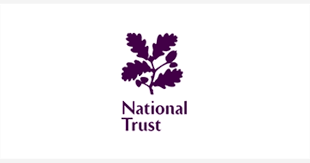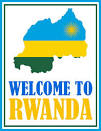This is a guest post by Orzala Ashraf Nemat
I witnessed a historical moment in Washington when I first learnt of Obama’s victory. I joined the crowed of victorious young and old on the streets of America’s capital that night, somehow with confusing feelings. I say confused because I felt so proud to be in America when it happened, but I was unsure whether I should also be happy with what he would do in Afghanistan. I had just – that same day – seen the shocking pictures of women and children injured by a US coalition-forces bombardment in Shah Wali Kot district of Kandahar province.
Would Obama be able to stop such atrocities? Would he be able to fight the war against terrorism with the social and economic means to oppose the military means?
These were the questions in my mind which caused my confusion and made me doubt whether or not to celebrate the moment. I joined the crowd because I saw, for the first time in the history of this land, that an African-American was elected as president; I did so because I had heard him speaking over the past three months about the working class, the middle class and I saw that he was their voice. Such words sounded very unfamiliar to me in the context of a capitalist country, so I thought at least that he is not trying to ‘rescue’ the rich, but that rather he was there also to help the poor and so on. So I joined the crowed. I saw him speaking: “If there is any one out there who still doubts that everything is possible, today is my answer. For those who want to tear this world up, we will defeat you. For those who are looking for peace and security, we will support you…”
I would like to offer, however, the expectations of the war generation and of all ordinary Afghan people who are neither part of the failed ruling government, nor are they terrorists or Taliban, and I do hope that these unheard voices have a space to be heard.
The ‘war on terror’ is a key issue in US foreign policy, and Afghanistan is one of the key battlefields for eliminating extremism and terrorism worldwide. Strengthening global security against terrorism must begin with an increased investment in the improvement of Afghan security forces. An increase in foreign military troops worries us – we are concerned that it just means more house raids and more bombing of civilians. This is not a war that can be fought by military means. Today everyone knows who the Taliban were/are and why they’re fighting. This war needs to be fought with a totally different approach.
We expect your support and investment in our local forces, while sending anti-corruption experts who ensure that the corruption is dealt with in a proper manner. This is essential for alleviating the responsibility from the international forces and will empower Afghans to defend their territory and fight against any kind of crimes on their own. Such a shift in security operations is important because the last seven years of military intervention is evidence for the failure to ensure overall security. Corruption is on the rise, the drug trade is booming and breaking world records, militants and warlords are violating the human rights of our most vulnerable citizens who have no avenues of recourse and still lack of basic social facilities. All this threatens the future of the country.
The militarization of development aid has jeopardized the work of civilian humanitarian assistance organizations, and as a result, hundreds and thousands of people are deprived of basic health and educational opportunities. A major lesson could be learned from the case of Afghanistan if the old-fashioned prescription of what is ‘good’ for the nation were put aside, and if instead the Afghan people were asked to define what they want and need.
Civil society, non-military political groups and tribal leaders are instrumental in maintaining support for a strong democratic Afghanistan that will deny terrorists a safe haven. However, such a strategy must and should not be considered ‘negotiations with the Taliban.’ The Taliban do not represent the Afghan communities. Should the US government and international community want to negotiate, it must be with the ones who have created this group – in other words, the intelligence services of Pakistan – because they have a big stake in directing master-minding the Taliban movement, not necessarily anyone in Afghanistan.
Afghanistan presents a tragic example of what cannot be achieved by compromising with and integrating warlords and drug-lords into the governing core of the nation. This much is clear, because at this point, seven years after the fall of the Taliban, the situation still deteriorates. The encouragement of some members of the international community that we should negotiate with those who behead civilians, use women and children as human shields, manipulate young people and brainwash them to become terrorists, cannot be accepted by Afghan people. The real end to the ‘war on terror’ can only be achieved if there is accountability for war and crimes committed during the recent upheavals and when an effective system of justice is established in the country. Only then can we begin to re-establish the infrastructure and make progress in basic economic development. Such investments will improve the Afghan economy and create opportunities for employment.
In the 21st century, the most important weapon to be given to Afghan people, of whom over 50% are youth, is the pen. More investment in education for a nation with a 71% illiteracy rate will significantly curb generations of prospective terrorist recruits against the West in general, and contribute to a sustainable peace in the region.
Women in Afghanistan, despite some claims to the contrary, are not liberated. Nor can an outside force liberate them. They are under-represented in the leadership and political decision-making processes; and moreover, the debates and discussions about negotiating with extremist groups such as Taliban and Hezb-e Islami are indeed endangering the status of women by limiting their access to education, jobs and political participation. The process of democratization and gender equality requires strengthening grass-roots initiatives working on such issues on the ground. Implying western models in a country where customary law holds sway over 90% of the territory will endanger the status of women further and will limit their full participation in the development and political decision-making.
I congratulate American women and men for electing a man of dignity, and one who is humble, an inspiring leader of our time and someone who walks to the White House with the idea of CHANGE. What we expect from you is to let the CHANGE for Afghanistan to be lead by Afghans and only support such CHANGE by supporting women and men, children and youth of Afghanistan with more economic development opportunities, more jobs, more education, and not by sending your troops and escalating the war. We need your help in fighting against corruption – the main cause of everything that you read in your newspapers or see on your television screen. Corruption has paved the ground for the re-organization of the Taliban; corruption is what opened the doors for the drug mafia, and indeed the larger global fight in Afghanistan should focus on corruption and ensuring rule of law.
We deeply respect the sacrifice America has made to end this war, and we also hope that you will consider the daily losses of common civilians – in particular those of women and children – due to the ‘war on terror.’ We hope that we will all look back with pride at this endeavor in which we undertake together to free the world of terrorism and sectarian strife.
Orzala Ashraf Nemat is currently a Yale World Fellow; she started first her career in helping journalists and foreign aid visitors to refugee communities that she was living in during the mid-1990s as a guide and translator. She is the founder of an Afghan women NGO and worked as executive director of this NGO between 1999 and 2007. Orzala has devoted ten years to establishing and delivering training programs to Afghan women and children in refugee communities in Pakistan and in Afghanistan. Often putting herself directly at risk under the Taliban regime, she launched underground literacy and health education programs for women and girls. Her organization initiated a programme for a Safe House for women and girls at risk which in present-day Afghanistan is a highly risky area of intervention. The organization under her leadership had significant achievements in creating nationwide mechanisms to deal with issues around violence against women. Orzala is increasingly involved in legal reform and advocacy for human rights and gender. Orzala has been awarded with several fellowships and has a Masters in Development Planning from the University of London. She has also worked with different international organizations working in Afghanistan as a consultant and officer, including Human Rights Watch, Swiss Development Cooperation, UNDP and UNIFEM. She is on the board of directors of the Afghan Women’s Network and other human rights networks in Afghanistan.


